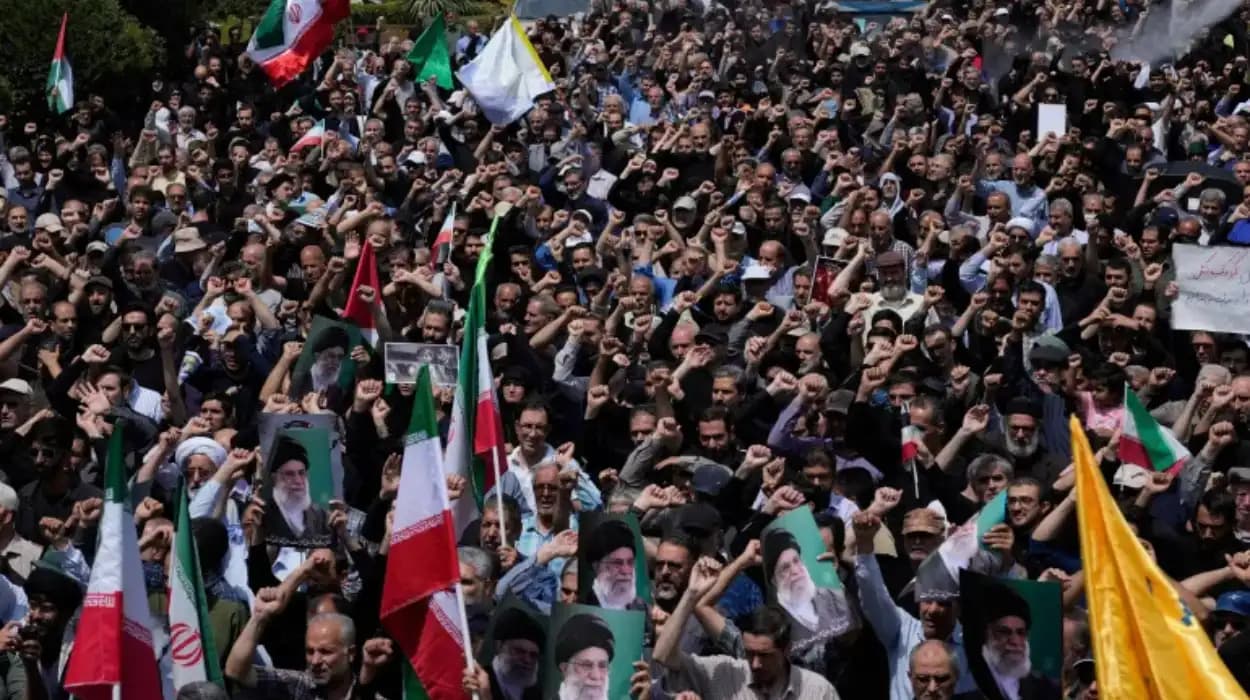Iran recently announced the arrest of eight individuals suspected of spying for Israel’s Mossad intelligence agency during the intense 12-day conflict between Iran and Israel in June 2025. The Islamic Revolutionary Guard Corps (IRGC) disclosed that the detainees attempted to transmit critical information about sensitive Iranian military sites and senior military officials to Israel. These arrests mark part of Iran’s heightened crackdown on espionage activities amid escalating covert and overt hostilities with Israel.
The Revolutionary Guards reported that the eight suspects were apprehended in northeastern Iran just before they could execute their plans and that authorities seized bomb-making materials, explosives, and devices intended for sabotage. According to the IRGC, these detainees were remotely trained by Mossad through specialized online courses. "These arrests serve as a crucial measure to prevent serious threats to national security," the IRGC asserted through state media.
Context of the 12-Day June Conflict
The espionage arrests are directly linked to the backdrop of violent clashes between Tehran and Tel Aviv in June 2025, which escalated from covert sabotage and intelligence operations to unprecedented open conflict including airstrikes and missile attacks. Israel launched a sustained 12-day air assault targeting Iranian nuclear facilities, senior military leaders, and other key infrastructure within Iran. The offensive resulted in significant casualties, including the deaths of several top Iranian generals and prominent nuclear scientists.
Iran retaliated with missile and drone strikes against Israeli military sites and urban infrastructure. The conflict also saw direct U.S. involvement, as Washington conducted strikes against Iranian nuclear installations, further intensifying hostilities. The Iranian government claimed a death toll of roughly 1,190 during the conflict, including civilians and security personnel. Israel, by contrast, reported 28 fatalities from Iranian counterattacks.
Iranian Judicial Actions and Espionage Executions
Security agencies in Iran have aggressively targeted suspected collaborators with Mossad since the conflict’s escalation. Several individuals tried for espionage have faced expedited and harsh legal proceedings. Notably, the execution of Rouzbeh Vadi, a nuclear scientist convicted of transmitting intelligence to Israel about other scientists targeted in strikes, took place in August 2025.
Bahman Choubi-Asl, another prominent figure convicted of working with Mossad as a database expert involved in Iran’s telecommunications networks, was executed recently following extensive trials. The judiciary highlighted his multiple overseas contacts with Mossad agents and receipt of payments and espionage tools.
Iranian judiciary spokesman Asghar Jahangiri emphasized,
"The judiciary will not show mercy towards spies and agents of the Zionist regime, and will impose strict sentences to serve as a warning to others."
Authorities claim hundreds of Mossad-related arrests in recent months as part of their ongoing internal security campaign.
Details of Espionage Operations
Officials stated that the suspects were involved in attempts to convey the locations of key Iranian military facilities and intelligence on senior commanders to Mossad operatives. The IRGC revealed that the espionage network had acquired materials intended for constructing launchers, explosives, and booby traps to be deployed within Iran.
Mossad’s recruitment and training reportedly involved remote learning platforms, enabling operatives to gain expertise without physical presence. Experts believe this method reflects sophisticated adaptations in modern espionage drawing on digital training environments.
The network allegedly patterned efforts to respond rapidly in the wake of the Israeli air raids, aiming to provide actionable intelligence for subsequent strikes or sabotage acts. These intelligence leaks threatened critical Iranian military capabilities during a high-risk moment of mutual escalation.
The Wider Impact of Espionage on Iran-Israel Relations
The arrests highlight the broader intelligence battle that runs parallel to open confrontations between Iran and Israel. Israel’s Mossad has long targeted Iranian nuclear and military programs, employing tactics ranging from cyber-attacks to covert sabotage and targeted killings. Meanwhile, Tehran accuses Israel of destabilization efforts and interference within its borders.
The recent escalations and espionage revelations underscore the fragility and volatility of the regional power dynamics. Officials warn that these spy rings not only undermine Iran’s military security but also threaten the stability of the entire Middle East region.
Iranian President Ebrahim Raisi declared recently that Iran would respond firmly to any espionage or sabotage threats, cautioning,
"Our enemies will face harsh consequences for violating our sovereignty."
This rhetoric accompanies ongoing military modernization and intelligence reforms designed to safeguard Iran’s strategic assets.
International Reactions and Human Rights Concerns
Human rights organizations have expressed concern that Tehran’s espionage charges and executions may also be leveraged for political suppression beyond genuine national security needs. Critics argue that the Iranian regime uses espionage cases to silence dissent and justify harsh crackdowns amid growing domestic unrest.
International bodies continue to monitor the situation closely, urging due process and fair trials for detained suspects. Despite these calls, Iran’s judiciary maintains a zero-tolerance stance on spying, particularly with regard to Israel, which it considers its primary adversary.
Tehran’s aggressive investigation and rapid executions since June reflect a strategic attempt to dismantle alleged spy networks before they can cause lethal damage to its nuclear and military capabilities.
The arrest of eight suspected Mossad spies by Iran during the latest 12-day war with Israel marks a critical development in the shadow war between the two nations. These arrests, coupled with executions of convicted espionage operatives, reveal the intense intelligence warfare that underpins the region’s ongoing violence. Iran’s firm response demonstrates its determination to protect national security at all costs amid persistent external threats.
While espionage between Iran and Israel is nothing new, the scale and transparency of these arrests during a period of heightened conflict signal a new phase of confrontation. The situation remains tense, with both sides deeply entrenched in covert and overt operations that continue to shape Middle East geopolitics.

